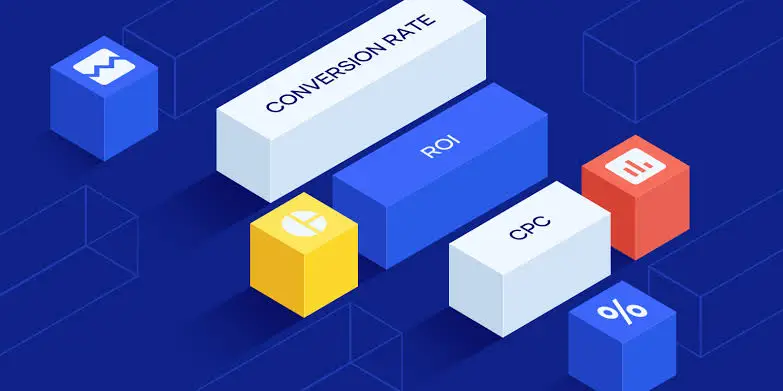22% of companies already have AI software of some kind within its organization. It’s no longer a technology locked away by Fortune 500 companies. E-commerce businesses can easily leverage artificial intelligence to drive revenue, reach more customers, and optimize marketing performance.

Choose an AI-marketing software
The first step to using AI software to scale as an e-commerce business is to choose the right solution. There are many different choices. In fact, there are currently 46 different options for “artificial intelligence writing” software on G2.

We personally recommend the AI software Morphio. You can sign up for a free account here. The platform has a variety of features that will help your e-commerce drive revenue and increase conversions. There are also Shopify specific tracking that helps you find your most profitable products, product categories, and get real-time alerts of any drastic changes in marketing data.
Find the most profitable customer segments
Who are you targeting? An e-commerce store needs to have a very clearly defined buyer persona. This helps write better sales copy, offer targeted promotions, and attract the right users who ultimately convert better. How do you do this? Artificial intelligence software is capable of analyzing your business and campaigns to determine the highest and lower converting segments.
For example, you can see this on Morphio’s “Audience Segments” tab. The columns list the highest and lowest performing segments of the software found within your marketing data. Take the demographics and information for the high converting customers and apply that to advertising campaigns. Tailor sales copy, recommendations, and offers to these individuals.

Add the low converting users to negative audiences to ensure that advertising campaigns don’t target these and waste ad dollars.
Automate SEO keywords, topics, and competitors
93% of all online experiences begin with a search engine. While it’s common for e-commerce stores to use influencer marketing, paid channels, and social media to drive traffic, many neglect organic search. Why? Simply because it takes a lot of time to pay off and optimize technical elements. If you have thousands of products, that’s thousands of keywords, title tags, meta descriptions, and more that need to be edited.

Luckily artificial intelligence software like Morphio can automate search engine optimization. How? Firstly through running every page through a thorough on-page checklist to alert you of missing title tags, H1 tags, meta descriptions, schema, and other important elements. Fixing these will help boost the page’s SEO health and ultimately traffic.

Additionally, AI software can improve your e-commerce store’s SEO by discovering profitable keyword and topic ideas. These are found by analyzing your company’s SERP performance and competitors. Keywords that you could potentially rank for are presented so you can optimize pages for them. Similarly, content ideas can be used for
blog posts to drive organic traffic.
Pounce on profitable opportunities (and prevent mistakes)
Great business opportunities can go right under your nose. Unless, of course, your e-commerce company constantly monitors for moments to capitalize on. That takes a lot of manpower and resources. Similarly, mistakes and security issues can occur and you may not find out before they’ve caused damage. How do you get around this? You guessed, artificial intelligence!
AI solutions like Morphio include special technology known as anomaly detection. Think of an anomaly as an outlier or unique event within your marketing data. This can be a channel suddenly driving more conversions or a quick drop in ad impressions. While you might’ve found this later after many investigations, artificial intelligence can instantly alert you of these events. This empowers you to take action sooner to drive more profits or prevent issues from snowballing.

Offer personalized product recommendations
Customers don’t want to feel like a cog in the wheel. This is what happens when they receive generic advertisements, recommendations, and upsells that aren’t tailored towards them. Consumers demand personalized experiences. Shopping and brand engagements that are fun and rewarding. Artificial intelligence is capable of analyzing consumer behaviour on a website to determine what the best product recommendations are. Presenting these can increase the average cart value and conversion rates.
It doesn’t stop there. AI can find the perfect products to upsell or cross-sell depending on what a user adds to their cart and behaves on a web page. Both of which increase revenue for your store.
Take Dell for example. The software company wanted to connect with customers deeply and provide personalized experiences. They partnered with an artificial intelligence provider to enhance email campaigns, collect data-driven insights, and improve ROI.
AI was able to tailor marketing copy, calls to action, and offers to each segment based on their demographics and behaviour. In one case study, AI increased CTR by 59% and conversions by 79% in a Cyber Monday email campaign.

With so much success, Dell applied the same approach to its Facebook ads. They were able to achieve an impressive 24% increase in CTR and 100% lift in conversions.

Find your most profitable products to promote
Not every product in your store will be home runs. Some will generate more traffic and sales than others. This is also known as Pareto’s principle or the 80/20 rule. In terms of e-commerce, 80% of sales may easily come from 20% of products.

Being able to determine what products are moving the needle and which aren’t helps e-commerce stores drive more conversions and revenue. How? By allowing them to promote and focus on the products their customers love the most. Products that don’t sell can be pushed to the back so they don’t get in the way of big revenue-drivers.
Artificial intelligence comes into the picture by being able to automatically determine what products are contributing to the most growth. This also includes product categories, bundles, and deals. Knowing this information empowers you to place these items at the forefront of your store’s promotion for increased sales.
Predictive performance of marketing and advertising campaigns
Have you ever launched a marketing or advertising campaign, only for it to fizzle out weeks or months later? It happens all of the time. Unfortunately, your e-commerce company ends up wasting precious time, energy, and budget. What if there was a way to prevent all of this and forecast performance ahead of time? There is. It’s called predictive analytics.
This form of artificial intelligence uses machine learning to, as you could guess, learn how a business operates. It then trains algorithms with current and past data to create accurate forecasts. These forecasts can be applied to marketing and advertising campaigns to determine if they may be profitable or not in the future.
Ultimately this allows you to achieve a couple of different things. FIrstly, decision making becomes automated and more accurate. You can learn about campaigns, their potential performance, and decide to further invest or cut losses early. This means that you are able to pivot to successful campaigns and save budget versus spending months to find out if something works or not.
Conclusion
E-commerce is a fast-changing industry with tons of competition. Your store needs to find competitive advantages and ways to operate more effectively. One of the best solutions to adopt for achieving both of these things is artificial intelligence. It’s no longer a technology that’s locked away by Fortune 500 companies. Your e-commerce store can easily use AI to automate tasks, forecast performance, and drive bottom line.
The first application is finding the most profitable customer segments. After all, not everybody will convert and be the right fit for your products. Artificial intelligence scans customer bases to determine the highest converting customer groups. You can focus on reaching these people through marketing and advertising to increase revenue.
Secondly, AI can automate elements of your search engine optimization strategy like finding contextual keywords and content topics. It is also capable of discovering backlink opportunities to build authority and referral traffic.
Artificial Intelligence solutions like Morphio are capable of monitoring your marketing data to find anomalies in real time. On one end, these include profitable opportunities and audiences that can be leveraged for driving revenue. On the other end, your store will be alerted in the case of any marketing failures or threats.
We also suggest using AI software to personalize shopping experiences and recommendations. It can automatically detect what products should be used as upsells and cross-sells to increase cart value and conversations. Relevant content can also be shared that matches their interests.
Want to learn how your e-commerce store can scale its online sales? Get in touch with us at [email protected] to get a free consultation.





